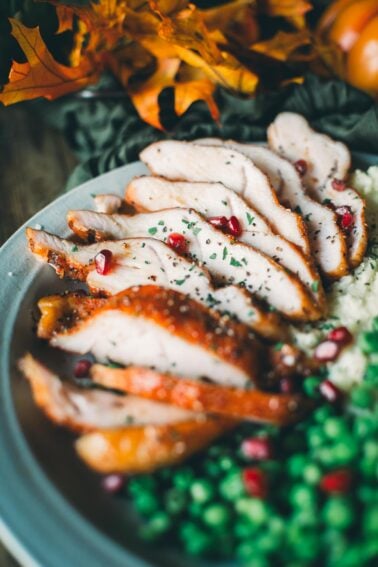Marinades are a go-to for many meat lovers looking to enhance flavor and texture. However, some common beliefs about marinades might be leading you astray.
Understanding the truth behind these myths can help you make the most of your culinary endeavors and avoid common pitfalls. Here are seven marinade myths that might be influencing your grilling sessions.
Marinades Tenderize Meat

Many people believe that marinades tenderize meat, but this is often not the case. While marinades, especially those containing acidic elements like vinegar or citrus, can alter the surface texture of meat, they generally do not penetrate deeply enough to impact tenderness significantly. Instead, most of the tenderizing effect occurs only on the outer layer of the meat.
If tenderness is your goal, consider alternative methods such as using a meat mallet or opting for cuts of meat that are naturally tender. For more insights, check out this detailed article about the limitations of marinades.
Longer Marinading Equals More Flavor

It seems logical that marinating meat longer would lead to more flavor, but that’s not necessarily true. Prolonged marination can sometimes lead to an overpowering or even unpleasant taste, especially if the marinade is acidic. In some cases, it can alter the texture of the meat, making it mushy.
For optimal flavor, a few hours of marination are often sufficient, particularly with fish or chicken. Over-marinating can be avoided by sticking to recommended times and adjusting ingredients to suit the type of meat you’re preparing. For more on balancing flavors, refer to this comprehensive guide.
Acidic Marinades Penetrate Deeply

There’s a common misconception that acidic marinades can penetrate deeply into meat, infusing flavor throughout. In reality, acids primarily affect the surface, and the flavors don’t travel much beyond that. This is why marinating for extended periods won’t necessarily increase the depth of flavor.
To achieve a deeply flavored dish, consider other methods like brining or injecting flavors directly into the meat. To explore the science of marinades further, visit this informative source.
All Oils Are Created Equal

Not all oils perform the same in a marinade. While some believe that any cooking oil will do, the type of oil used can significantly impact the flavor and cooking process. Oils with high smoke points, such as grapeseed or avocado oil, are often better for grilling because they won’t burn as quickly as olive oil.
Additionally, flavored oils can add an extra dimension to your dish. Consider the cooking method and desired flavor profile when selecting your oil. For a deeper dive into the nuances of oils and marinades, check out this discussion.
Marinades Are Only for Flavor

While flavor enhancement is a primary reason for using marinades, they can also serve other purposes such as adding moisture or acting as a barrier during cooking. Ingredients like yogurt or buttermilk, often found in marinades, can help keep meat juicy, especially in lean cuts.
Understanding the different roles marinades can play will help you select ingredients that align with your cooking goals. For more culinary tips, take a look at this blog that covers various myths and facts about marinades.
You Can Reuse Marinades

Reusing marinades is a risky practice that can lead to food safety issues. Once a marinade has been in contact with raw meat, it can become a breeding ground for bacteria. It’s essential to discard used marinades or boil them thoroughly if you plan to use them as a sauce.
To avoid waste, consider setting aside a portion of your marinade before introducing raw meat. This way, you can have extra marinade for basting or serving without contamination concerns.
Marinades Work for All Types of Meat

Each type of meat responds differently to marinades. While they can enhance flavors in meats like chicken and pork, they might not have the same effect on more robust meats like beef or lamb. The composition and cooking method also play significant roles in how well a marinade performs.
Understanding the characteristics of the meat you’re working with can help you make more informed decisions about marinating. Tailor your approach based on the specific needs and qualities of each type of meat for the best results.
Hungry for more? Subscribe to our newsletter and become part of the world’s best meat community! From grilling tips to smoky secrets, we send you the best recipes, guides, and expert advice to master every cut.













